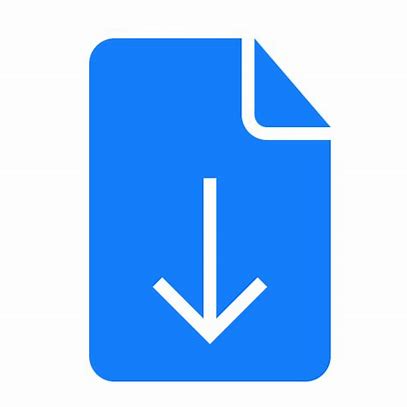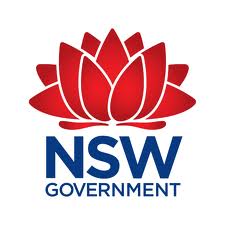NSW ADJUDICATION
|
|
Adjudication in NSW is the dispute resolution process within the NSW Building and Construction Industry Security of Payment Act 1999 (the Act) which applies to construction work and/or related goods and services carried out in NSW. Be mindful of the following: Amendments have been applied only to contracts that have commenced on or from 21 October 2019. Please select from the options below for the appropriate Act relating to your claim: Contracts commenced before 21 October 2019 Contracts commenced on or from 21 October 2019 Canberra does not come under the NSW Act;and 'Cross state legislation' which is where you may be a Claimant in NSW but the construction work or related goods and services was carried out in another State. |
What is construction work and related goods and services?What is Construction work under the Act What are related goods and services under the ActWhat is NOT covered by the Act
|
Steps to adjudication:
There are 7 main documents involved in the process as follows:
1. The Payment Claim - -The Claimant must serve a Payment Claim (or your tax invoice, statement, progress claim, final claim) on the Respondent . The payment claim must contain the words ‘This is a payment claim made under the Building and Construction Industry (Security of Payment) Act 2009 ACT’ and clearly identify the construction work or related goods and services carried out, identify the Respondent, the amount of payment which is due and any other information required as per the construction contract. For example, the contract may require you to provide a statutory declaration with the payment claim. LESSON: Be sure you know the requirements under the contract before sending your payment claim. The payment claim must be served on or from the reference date. The reference date will be the time stipulated in the contract (for example the 26th day of the month) or, if there is no time stated, then the last day of the month for works or goods and services carried out up to that date. Service of the payment claim on the Respondent can be done by way of:
If you are serving the payment claim by regular post ensure you have the correct address of the Respondent as per the contract. The Claimant must ensure you know who the Respondent is! For example, you may think you are working for Modern Kitchens when you are really working for Modern Kitchen Installations Pty Ltd. Refer to information Resources below. 2. The Payment Schedule -The Respondent may agree to the claimed amount and pay such amount on the due date for payment OR reply to the claim by providing a Payment Schedule . The Payment Schedule must:
IMPORTANT: A payment Schedule must be served within the time required under the construction contract, or within 10 business days after receipt of the Payment Claim (whichever expires earlier). The Respondent has 10 business days to provide a Payment Schedule after receipt of the payment claim. The payment schedule must identify the payment claim, must indicate the amount of payment (if any) that the Respondent proposes to make. If the amount of payment is less than the claimed amount the Respondent must indicate why the schedule amount is less and provide reasons for withholding payment. In these circumstances if the Claimant does not agree with the payment schedule the Claimant is entitled to make an adjudication application. The adjudication application must be lodged within 10 business days after receipt of the payment schedule. Remember, a copy of the adjudication application must be served on the Respondent. No Payment Schedule: If there is no payment schedule, you then wait for the due date for payment, which is depending on whether you are: - A subcontractor is 30 business days prior 21 Oct 2019 or 20 business days post 21 Oct 2019; - A Head Contractor is 15 business days; or - If an earlier date was agreed in accordance with the terms of the contract A progress payment to be made under an exempt residential construction contract becomes due and payable: - On the date on which the payment becomes due and payable in accordance with the terms of the contract, or - If the contract makes no express provisions with respect to the matter, on the date occurring 10 business days after a payment claim is made. before giving the Respondent a second and last chance to give you a payment schedule. WHAT IF the Respondent does not provide a Payment Schedule within the required time and does not pay the claimant the claimed amount on the due date for payment? The claimant must notify the Respondent within 20 business days immediately following the due date for payment of it’s intention to apply for adjudication and gives the Respondent another opportunity to provide a Payment Schedule within 5 business days, this is referred to as S17(2) Notice. If the Respondent does not provide a Payment Schedule within the required time or pay all or any part of the claimed amount on the due date for payment then the Claimant may recover the claimed amount or unpaid portion as a debt due in any court of competent jurisdiction or make an adjudication application and may serve notice of the Claimant’s intentions to suspend carrying out the construction work or suspend the supply of related goods and services. Prior to the making of an adjudication application, the Claimant must first notify the Respondent of it’s intention to apply for adjudication. In this circumstance the Claimant must notify it’s intention within 20 business days immediately following the due date for payment that the Claimant intends to apply for adjudication and provide the Respondent with an opportunity to provide a payment schedule within 5 business days, this is referred to as a S17(2) Notice. If the Respondent does or does not provide a payment schedule within 5 business days after receipt of the intention notice, the Claimant has 10 business days at the END of the 5 day period to lodge an Adjudication Application. 3. Section 17(2) Notice - 5. Payment Withholding Request & Statutory Declaration - If the Claimant applies for adjudication and the Respondent has not provided a Payment Schedule in either circumstance, the Respondent is NOT eligible to provide an Adjudication Response for an Adjudicator to consider. This could be detrimental to a Respondent as it is most likely the adjudicator will find in favour for the Claimant once he/she is satisfied the process has been strictly adhered to and the documents provided by the Claimant support the Claimant’s claim. |
Resources as a step by step guides can be found here:
- NSW Overview Flowchart
- NSW Flowchart (Simplified)
It is important to know who you are dealing with so do your homework. Here are some helpful guidelines
|
|
Who are you working for? You may think you are working for Fred Bloggs from ABC Electrical, so you address your invoices to ABC Electrical. When ABC Electrical fails to pay you lodge an adjudication application and you are successful in your application, when ABC Electrical does not pay, you request an Adjudication Certificate. The adjudication certificate must state the name of the Respondent as per the determination and in this case it is ABC Electrical. Upon lodging your certificate with the court to enforce judgment you find out there is no such entity as ABC Electrical as it is an unregistered trading name and the actual name of the company that you are dealing with is Fred Bloggs Electrical Pty Ltd. So where does this lead you - nowhere. Judgment cannot be enforced and you have to start from square one. |
|
|
How can you find out who you are working for? There are a multitude of documents you can review to ascertain who you are working for - the contract, a letter of intent, a purchase order, correspondence, ASIC , ABN Lookup and NSW Builders Licence Check . |
|
Security of Payment Legislation Assistance and Information The Security of Payment legislation is designed for self help towards adjudication but there are many people willing to help you with your progress payment for a price. So we have uploaded free material which will help you work through the maze of securing payment under the various legislations and if you do need help then the cost of investigative work can be significantly reduced. Most of the information is in the public domain but could be of some assistance to you. Please read our disclaimer when using any of these resources. NSW Security of Payment Act 1999 NSW Security of Payment government website |
|
|
'Australian Solutions Centre has certainly lived up to it's name in our experience by providing timely and effective advice and solutions on a number of deb recovery issues. We thoroughly recommend ASC to you.' |


